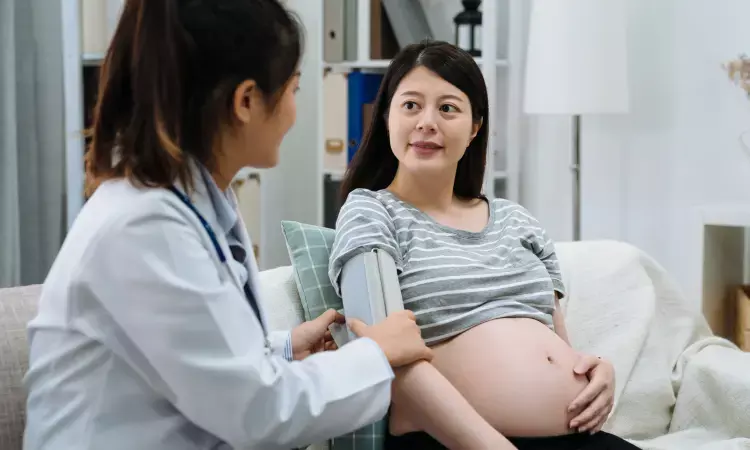- Home
- Medical news & Guidelines
- Anesthesiology
- Cardiology and CTVS
- Critical Care
- Dentistry
- Dermatology
- Diabetes and Endocrinology
- ENT
- Gastroenterology
- Medicine
- Nephrology
- Neurology
- Obstretics-Gynaecology
- Oncology
- Ophthalmology
- Orthopaedics
- Pediatrics-Neonatology
- Psychiatry
- Pulmonology
- Radiology
- Surgery
- Urology
- Laboratory Medicine
- Diet
- Nursing
- Paramedical
- Physiotherapy
- Health news
- Fact Check
- Bone Health Fact Check
- Brain Health Fact Check
- Cancer Related Fact Check
- Child Care Fact Check
- Dental and oral health fact check
- Diabetes and metabolic health fact check
- Diet and Nutrition Fact Check
- Eye and ENT Care Fact Check
- Fitness fact check
- Gut health fact check
- Heart health fact check
- Kidney health fact check
- Medical education fact check
- Men's health fact check
- Respiratory fact check
- Skin and hair care fact check
- Vaccine and Immunization fact check
- Women's health fact check
- AYUSH
- State News
- Andaman and Nicobar Islands
- Andhra Pradesh
- Arunachal Pradesh
- Assam
- Bihar
- Chandigarh
- Chattisgarh
- Dadra and Nagar Haveli
- Daman and Diu
- Delhi
- Goa
- Gujarat
- Haryana
- Himachal Pradesh
- Jammu & Kashmir
- Jharkhand
- Karnataka
- Kerala
- Ladakh
- Lakshadweep
- Madhya Pradesh
- Maharashtra
- Manipur
- Meghalaya
- Mizoram
- Nagaland
- Odisha
- Puducherry
- Punjab
- Rajasthan
- Sikkim
- Tamil Nadu
- Telangana
- Tripura
- Uttar Pradesh
- Uttrakhand
- West Bengal
- Medical Education
- Industry
HCQS reduces Preeclampsia in SLE-affected pregnancy, while aspirin has no role, study confirms

Australia: A single-centre retrospective study of lupus-affected pregnancies has concluded that hydroxychloroquine significantly lowers the risk of preeclampsia.
The researchers have also added that there is no association between aspirin and preeclampsia.
The findings of the study are published in the Pregnancy Hypertension.
It is already known that Systemic Lupus Erythematosus (SLE) is a chronic autoimmune disease affecting women of childbearing age disproportionately. Preeclampsia occurs in approximately 25 % of SLE-affected pregnancies, which further increases the complications (both maternal and fetal).
Hydroxychloroquine (HCQ) has properties (anti-inflammatory, antioxidant, anti-thrombotic) which impacts the outcomes of pregnancy in such cases. It is recommended in pregnant women with SLE because it reduces the disease flare risk. But its role remains uncertain, and it has conflicting results.
Studies suggest aspirin significantly reduces preterm preeclampsia (high-risk women) and is therefore recommended for prophylaxis due to the pro-angiogenic effect. This effect is theoretical and has no evidence that it significantly reduces risk in this population group.
Considering this, a study was conducted to determine the actual effect of aspirin on preeclampsia risk in women with SLE. The researchers determined the association between hydroxychloroquine, aspirin and preeclampsia using adjusted logistic regression models.
The summary points of the study are:
- Hydroxychloroquine significantly lowered the risk of preeclampsia in 95 pregnancies with an adjusted OR of 0.16.
- There was no association between aspirin and preeclampsia with an adjusted OR of 1.34.
- Preeclampsia affected 17 pregnancies constituting 11.8 % and 25 % in the HCQ exposed and the HCQ unexposed group with OR of 0.40 with a 95% Confidence Interval.
- There was no record of the severity of preeclampsia.
The researchers commented in the short communication that SLE is related to higher preeclampsia rates. Aspirin and HCQ are recommended in such cases, but there is a lack of studies explaining these outcomes in the Australian cohort.
The study has highlighted that HCQ lower preeclampsia risk while there is no association between aspirin and preeclampsia.
Further reading:
Short communication. Preeclampsia in women with lupus – influence of aspirin and hydroxychloroquine on pregnancy outcome. Jessica Phillips et al.
BDS, MDS in Periodontics and Implantology
Dr. Aditi Yadav is a BDS, MDS in Periodontics and Implantology. She has a clinical experience of 5 years as a laser dental surgeon. She also has a Diploma in clinical research and pharmacovigilance and is a Certified data scientist. She is currently working as a content developer in e-health services. Dr. Yadav has a keen interest in Medical Journalism and is actively involved in Medical Research writing.
Dr Kamal Kant Kohli-MBBS, DTCD- a chest specialist with more than 30 years of practice and a flair for writing clinical articles, Dr Kamal Kant Kohli joined Medical Dialogues as a Chief Editor of Medical News. Besides writing articles, as an editor, he proofreads and verifies all the medical content published on Medical Dialogues including those coming from journals, studies,medical conferences,guidelines etc. Email: drkohli@medicaldialogues.in. Contact no. 011-43720751


